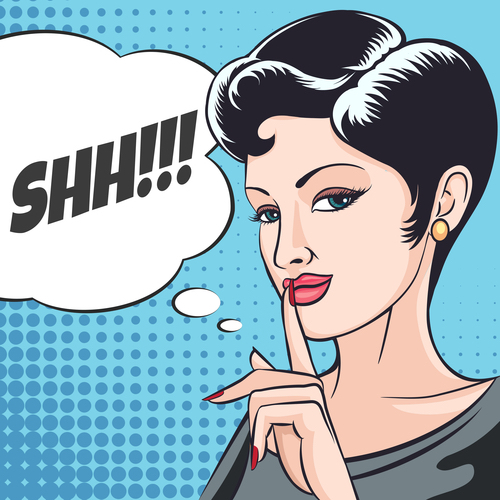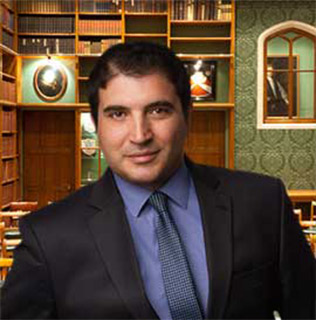
 >
>

Under modern criminal law, the term “Crime” does not have a universally accepted single definition. However, in everyday language, one could define “crime” as an act committed or omitted, in violation of a public law, which either prohibits the doing of a specific act or commanding it to be done.
While, every crime must be a violation of a law, not every violation of a law is a crime. For instance, breach of an enforceable contract provision is a violation of the contract law, but it is not automatically punished by the government. That is because, in the United States Contractual Agreements are governed by Civil Law rather than Criminal Law.
Here at ChosenLawyers.com, we search amongst thousands of lawyers, in order to find and choose some of the most Competent, Courageous, Credible and Compassionate Lawyers in each field of law. That is because, we believe, “Justice for All” and “Equality under Law” should not be mere political promises. They should be Great Lawyering in action. So if you have been charged with a crime, please click HERE and know your rights and duties right away.
Depending on jurisdictions, generally, the purpose behind legislation and promulgation of a criminal law is to achieve retributive justice:
Retribution means punishment. Although, the general understanding of Retribution is not based on the ancient Golden Rule of “an eye for an eye.”
Under Modern Law, the general purpose behind retributive justice is that punishment must fit the crime, but it cannot be an act of revenge. In other words, defendants must give up something in return for the offenses they’ve committed; but not exactly an "equivalent retaliation.”
The term Retribution is not exclusive to criminal law. Under civil law Retribution or Restitution is also incorporated to achieve a just outcome in a civil dispute.
One of the main reasons for Retributive Justice is to deter the specific offender from committing crimes in the future; and set an exemplar for the society at large.
Criminal laws are also designed to keep convicted criminals away from the society, by imprisonment or in some jurisdictions by imposing death penalty on them; if they’ve committed certain capital offenses.
Rehabilitating a convicted criminal is another important objective of our modern laws. That is the re-integration into society of a person who has been convicted and endured the imposed punishment. The main hope under this philosophy is to reduce habitual crimes, also known as criminal recidivism.
Restoration The goal is to repair, through state authority, any injury inflicted upon a victim by an offender. For example, one who steals or embezzles from another, will be forced to give back the property or its equivalent value to the victim. Although Restoration or Restitution is also a civil law doctrine.

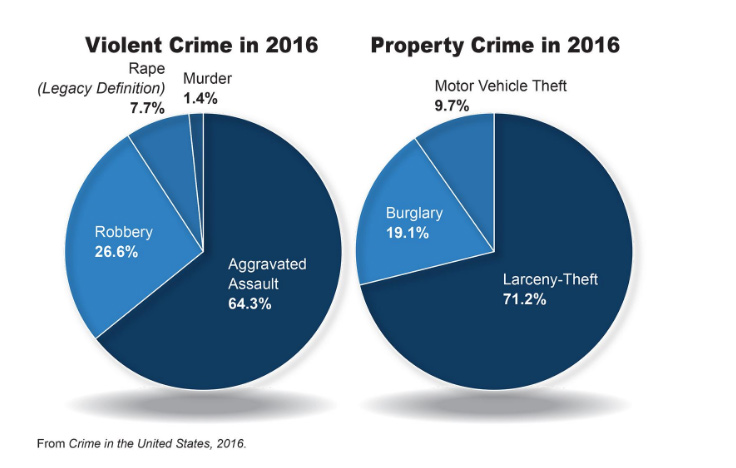
According to statistics, the law enforcement makes about 12,200,000 (Twelve Million Two Hundred Thousand) arrests, every year, throughout the United States
The United States has the highest incarceration rate in the world, including pre-trial detainees or convicted people. About 2,500,000 (Two Million, Five Hundred Thousand) people are incarcerated in the United States.
Considering the fact that the United States has only 5% of the World’s Population, it has about 25% or 1 in 4 prisoners in the world. Majority of these prisoners are from poor segments of the society, who cannot afford a competent lawyer to defend their constitutional rights and obtain justice.
The relationship between race, arrests and convictions is grossly disproportional. The incarceration rate of African-Americans is more than three times higher than their proportional population. In other words, the incarceration of Black Males is over six times higher than that of Caucasian males.
Research suggests that the main reasons for this bias are socioeconomic factors and racial discrimination by the law-enforcement, jury, judges and the entire criminal justice system, itself.
According to a 2009 report Hispanic Americans are also grossly victims of injustice. In 2007, for instance, Hispanics "accounted for 40% of all sentenced federal offenders: more than triple their share (13%) of the total U.S. adult population". This was an increase from 24% in 1991. As expected the data imply a much stronger tie between racial, national origin discrimination, poverty and criminal convictions.
While, racial bigotry and poverty are the main causes of most miscarriages of justice in the United States, we should not lose sight of the fact that our justice and penal system are slowly delegated, by our various levels of federal and state governments, to the private corporations.
One of such corporations is CoreCivic. This Multi-Billion-Dollars corporation was founded in 1983 in Nashville Tennessee by Thomas W. Beasley; a lawyer, who served as the chairman of the Tennessee Republican Party from 1977 to 1981.
This for profit corporation, which originally was called, Corrections Corporation of America (CCA) owns and/or operates jails and prisons under contract with federal, state and local governments.
In fact, Corrections Corporation of America (CCA) designs, builds, manages and operates correctional facilities and detention centers for the Federal Bureau of Prisons, Immigration and Customs Enforcement, the United States Marshals Service, as well as state and county facilities across the United States.
Moreover, Federal contracts for correctional and detention facilities generated up to 51% of Corrections Corporation of America (CCA) revenues in 2015.
On August 18, 2016, Deputy U.S. Attorney General Sally Yates, who was one of first officials to be fired by Trump, announced that the Justice Department intended to end its Bureau of Prisons contracts with for-profit prison operators.
She gave the following reasons for the cancellation: "...the facilities are both less safe and less effective at providing correctional services... they compare poorly to our own Bureau facilities. They simply do not provide the same level of correctional services, programs, and resources; they do not save substantially on costs. The rehabilitative services that the Bureau provides, such as educational programs and job training, have proved difficult to replicate and outsource and these services are essential to reducing recidivism and improving public safety.”
In other words, a corporation, which its sole purpose for existence is to make money, would cut any possible corners to make more profit. In order to continue and expand this profitable venture, these corporations spend vast amounts on lobbying, and political sponsorships to make sure all of their beds are filled at the cost of Justice itself.
Despite the slogans such as “Equality Under Law” and “Justice for All” every year thousands of people are wrongfully charged and convicted with crimes they’ve never committed.
The reasons for this gross miscarriage of justice are plenty. Here are a few:
In many cases, Eyewitness’ misidentification is the main cause of wrongful convictions. Numerous studies show that the human mental process is prone to make many mistakes.
Many forensic assessment and testing methods have no viable scientific validation or they are unreliable. As a result, forensic analysts sometimes testify in cases without a proper scientific basis for their findings. Not to mention the potential misconduct of the forensic technicians.
In many cases, innocent defendants make fear-based confessions or plead guilty, because of pressure from unscrupulous law enforcement, prosecutors or incompetent lawyers.
In some cases, some law enforcement agents and officials manufacture facts and/or present bogus evidence to ensure that a defendant is convicted despite clear proof of innocence.
Often, statements from people with incentives to testify—particularly incentives that are not disclosed to the jury—are the central evidence in convicting an innocent person. Many people have been wrongfully convicted in cases, where a party was paid to testify or receive favors in return for their testimony.
One of the most important causes of wrongful convictions is the very lawyer, who is commissioned to provide effective legal help. Such incompetency may come from lack of knowledge of the law, lack of experience, inability to articulate facts or diligence to thoroughly investigate the facts and circumstances of the case at hand.
Here at ChosenLawyers.com, we search amongst thousands of lawyers, in order to find and choose some of the most Competent, Courageous, Credible and Compassionate Lawyers in each field of law. That is because, we believe, “Justice for All” and “Equality under Law” should not be mere political promises. They should be Great Lawyering in action. So if you have been charged with a crime, click HERE and know your rights and duties right away.
Attorney-Client Privilege is a well-recognized law that protects all confidential communications made between a lawyer and a client regarding the rendition of legal services in all fields of law, specifically, Criminal Law.
With some exceptions, generally, a Lawyer never can reveal such communications to anyone, including the court without client’s permission. This sense of mandated loyalty is designed to allow clients reveal the truth to their lawyers.
The important issue is that even if the guilt is obvious, the lawyer still has a duty to make sure that the prosecutor complies with his or her mandated responsibility of proving all elements of a charged crime; beyond a reasonable doubt.
Some people clearly disagree with this legal protection, but only until they are themselves or their loved ones have been accused of a crime, then they want the protection, of course!
One of the most sacred principles in the United States’ Criminal Justice System is the doctrine of “Presumption of Innocence.”
Presumption of innocence derives from a Latin phrase: “Ei incumbit probation qui dicit non qui negat,” which literally means, the burden of proof is on the accuser and not the accused.
This fundamental principle is designed to relieve a criminal defendant from burden of proving his or her innocence. In other words, a Criminal Defendant is presumed to be innocent, until the prosecution proves, beyond a reasonable doubt, all essential elements of the crime charged. No matter what indictment or formal charges are brought against the defendant, and no matter what the personal feelings of those involved may be. If the prosecution cannot prove by offering admissible and relevant evidence to prove the defendant's guilt, the defendant is legally "not guilty" and must be set free.
This principle is not exclusive to the United States. For instance, the Universal Declaration of Human Rights, Article 11 mandates the following:
"Everyone charged with a penal offence has the right to be presumed innocent until proved guilty according to law in a public trial at which he has had all the guarantees necessary for his defense."
It has been ruled by the United States Supreme Court that in some cases, a judge must issue special instructions to the jury on the principle of the presumption of innocence.
Special instructions on the presumption of innocence may be required, for instance, in cases where the jury may be tempted to convict the defendant based on extraneous considerations rather than the weight of the prosecution's evidence in the case.
The release of a defendant from jail before his or her trial is favored under the principle of the presumption of innocence; provided that the defendant meets the bail requirements.
The 8th Amendment to the United States’ Constitution also supports this stance, by prohibiting courts from setting excessive bails. However, in cases where the defendant is being charged with a very serious crime and is considered likely to pose a danger to the public or flee the jurisdiction, it is widely accepted that he or she may be held without bail
Beyond a Reasonable Doubt is the standard, which measures the reasonableness of the presented evidence in a criminal case, in order to prove the accused’s guilt or innocence.
There may still be doubt about the guilt or innocence of the accused, but only to the extent that it would not affect a reasonable person's belief regarding whether or not the defendant is guilty.
Beyond a reasonable doubt, however, means that the judge and jury are supposed to resolve all possible doubts about the defendant's guilt, and conclude that there is no other reasonable conclusion but that the defendant must have committed the crime. Accordingly, most defendants try to establish plausible alternative theories about the prosecution's theory of guilt in order to raise reasonable doubts about the truth of the charges.
In civil cases, there are much lower standards of proof such as "preponderance of evidence", which is a "more likely than not" standard.
No. The 5th Amendment to the United States’ Constitution entitles criminal defendants the right not to testify. This right is also called taking the 5th. Thus, if a defendant chooses not to testify, the judge must instruct the jurors that they can't presume that the defendant is guilty, based on a general assumption, that an innocent person would defend himself or herself against such accusations.
This instruction is crucial, because there is a natural tendency to assume that by not testifying, the defendant has done something wrong. Instead, the defendant may have been instructed by his or her lawyer not to testify because:
If a defendant is not capable of understanding what he or she is accused of, due to mental illness or any other impediment, then a judge may order a physical and psychological evaluation of the defendant. This professional evaluation is designed to determine if the defendant is indeed incompetent or is deceiving the court, by feigning mental illness to avoid punishment.
United States is the land of laws: some of which are trivial, biased and flatly unconstitutional. Nonetheless, there are literally millions of Federal and State laws regulating our rights, duties and ultimately our lives and liberties.
With such a gargantuan number of laws, even the most prudent people could find themselves on the wrong side of the law; and in the least expected time and place. In such unfortunate moments, saying or doing the wrong thing could make matters worse. The best way to handle such a situation is to know your rights and duties, right away.
1)Remaining Silent and asking to speak with your Attorney are not and cannot be construed as signs of guilt: they are your Constitutional rights;
2)Due Process of Law: The Fifth Amendment to the United States Constitution creates a number of rights in both criminal and civil cases. One of such rights is “Due Process of Law.” This right mandates that certain procedures must be followed, in order to protect “Life, Liberty or Property” of the people against unlawful searches and seizures.
If you are accused of a crime anywhere, you should always make sure to immediately contact a Competent and Credible Criminal Defense Lawyer to safeguard your rights and duties.
Here at www.ChosenLawyers.com it is our job to actively search and carefully bring some of the most Courageous, Credible, Competent and Compassionate Lawyers in all fields of law under one virtual roof. So you can have access to the right lawyer for your case, right away.
To facilitate the process of great lawyering with the speed of need, we’ve equipped the Chosen Lawyers with Private, Confidential Audio/Video/Text LIVE CHAT portals.
Your initial Case Evaluation is FREE and it is entirely your choice to hire or not hire the Chosen Lawyer. However, whatever you do, make sure you deal with your legal problems right away. That is because, when it comes to Legal Matters, Time Matters! ®
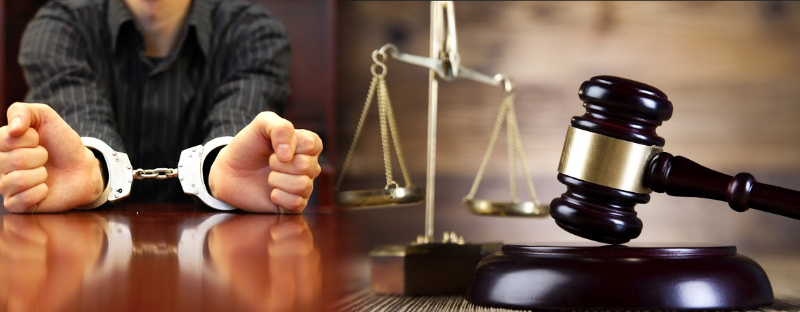
Although, it varies by jurisdiction, the first step in a criminal case is for the defendant to exercise his or her right to choose a jury trial or a bench trial.
Again, depending on the jurisdiction, the number of jurors could be as many as 12 or as little as 6.
The right to a trial by jury in a criminal prosecution is protected by both Article III, Section 2 of the federal Constitution, which delineates: “The Trial of all Crimes, except in Cases of Impeachment, shall be by Jury” and the Sixth Amendment, which also says: “In all criminal prosecutions, the accused shall enjoy the right to a speedy and public trial, by an impartial jury.”
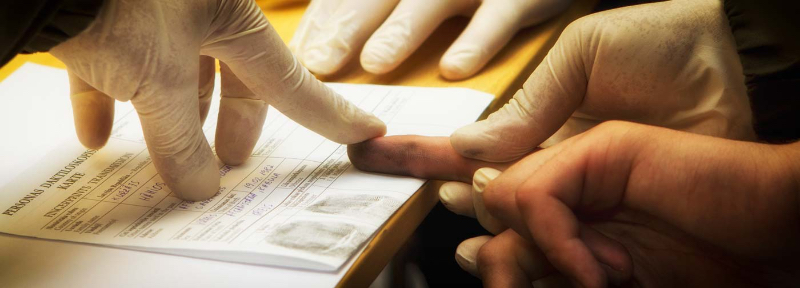
No. Generally, criminal defendants charged with crimes that carries a possible conviction of more than six-months imprisonment are entitled to a jury trial. Crimes that are punishable by less than six months are often considered "petty" crimes and do not necessarily entitle the defendant to a trial by jury.
Typically, jury convictions must be unanimous, meaning that all jury members must agree on facts leading to a conviction. However, there are exceptions to this rule in some states, where ten out of twelve jury members can vote to convict the defendant.
Jurors are chosen from the “jury pool,” which is also referred to as the “venire.” The venire must be randomly selected from cross-section of the community, where the trial is to be held.
Generally, the prosecutor and the defense select the jurors, by asking them questions and assess their impartiality, etc. This process is referred as to “Voir Dire.”
In some jurisdictions the judge conducts the voir dire by asking questions submitted by the prosecutor and the defendant or the defendant’s attorney. Sometimes, the judge may ask questions of his or her own, as well.
“In Limine” is a Latin term, which means “on the threshold” or “at the start.” This means that the parties may request from the judge, outside the presence of the jury, whether, certain evidences should be excluded or admitted and why. The judge then rules on such motions by denying or granting the requests.
An opening statement is generally an introductory roadmap, intended to make the jury familiar with what the case is all about. Although, some lawyers strut their stuff in a dramatic way, generally, the opening statement must be based on the evidence, reasonably believed to be admissible to the court.
In criminal cases, generally, the prosecutor presents his or her opening statement first. Then the defense offers his or hers. However, the Defense is not mandated by law to offer an opening statement, since the prosecution is required by law to prove all elements of the crime charged, beyond a reasonable doubt.
The prosecution presents its main case through direct examination of prosecution witnesses.
Direct Examination is the name of a procedure that allows a party to question his or her own witness to answer certain questions.
Direct examination is designed to support facts and/or evidence presented by the party who called the witness.
In direct examination, parties are, generally, forbidden from asking leading questions. This prohibition is designed to prevent a lawyer from feeding answers to a favorable witness. An exception to this rule occurs when a witness is hostile to the questioner's side of the controversy. The lawyer may then ask the court to declare the witness a hostile, whom, the party can ask leading questions.
A leading question is a question that suggests a particular answer or contains the information the examiner is looking to have confirmed.
A hostile witness or adverse witness or unfavorable witness, is a witness that is antagonistic to the party who called the witness for direct examination.
Cross-examination is the name of a procedure, which allows one party question the other party’s witness in order to elicit favorable facts from the witness, or to impeach the credibility of the testifying witness.
The prosecution finishes presenting its case
The defense may move to dismiss the charges if it reasonably believe that the prosecution has failed to produce enough evidence, which proves all elements of the crime charged, beyond a reasonable doubt. The court or judge may either deny the motion to dismiss or grant it.
Cross-examination is referred to the process of questioning a witness or party during a trial, hearing, or deposition by the party opposing. The objective of this process is to evaluate the truth of that witness’s testimony or to develop the testimony further, and so on.
Cross-examination is, generally, restricted to matters covered during direct examination.
The defense finishes presenting its case.
The prosecutor offers evidence to refute the defenses evidences and/or arguments.
The prosecution and defense get together with the judge and determine a final set of instructions that the judge will give the jury.
The prosecution makes its closing argument by summarizing the evidence he or she presented, in order to explain to the Jury, one last time, why it should find the defendant guilty
The defense usually refutes the prosecutor's closing argument. The defendant or his/her attorney explains why the prosecutor failed to prove its case against the defendant, thus the Jury should find defendant not guilty or guilty of a lesser crime.
The judge instructs the jury about what law to apply to the case and how to carry out its duties.
The prosecution makes its closing argument by summarizing the evidence he or she presented, in order to explain to the Jury, one last time, why it should find the defendant guilty
Mistrial is referred to a trial that has been terminated prior to its normal conclusion.
A judge may declare a mistrial for several reasons, including lack of jurisdiction, serious mistake, incorrect jury selection, jury deadlock, prejudice, misbehavior, or hung jury.
A mistrial may also result from a fundamental error so prejudicial to the defendant that it cannot be cured by appropriate instructions to the jury, such as improper remarks made during the prosecution's summation.
Double Jeopardy is a United States Constitutional Mandate, which prohibits all 50 States and the Federal Government from prosecuting an accused person, twice for the same crime. You can find this clause in the 5th Amendment of the United States Constitution, which says: “no person… shall be subject for the same offense to be twice put in jeopardy of life or limb.”
It is important to know that Double Jeopardy Clause and the entire Bill of Rights, which consists of the first 10 Amendments of the United States Constitution, were originally designed as preventative measures to stop the Federal Government from intruding into the Peoples’ rights. However, the Equal Protection Clause of the 14th Amendment incorporated almost the entire Bill of Rights to all of the States Governments as well.
Amongst many other objectives, Double Jeopardy is supposed to prevent vindictive governmental prosecutors from using government resources to bludgeon the people to unjust submissions. And it is also supposed to give criminal prosecutions a sense of finality
The United States Supreme Court has ruled that Double Jeopardy restriction applies to all misdemeanors, felonies and even juvenile delinquencies, regardless of the kind of punishment imposed.
It is also important to know that Double Jeopardy protection only applies to Criminal adjudications and not civil or administrative proceedings.
Courts have defined the difference between civil proceeding and criminal proceeding as:
A Criminal Proceeding is designed to primarily punish the wrong doer. Thus it is a retributivist action. It basically says: You’ve done such a wrong act or omission: Thus, you will have to be punished. The purpose of this is to deter the defendant from committing crimes in the future.
Civil proceeding, on the other hand, is designed to remedy a wrong. In other words, Civil Proceeding’s primary purpose is to compensate the injured party for any losses he, she or it has incurred.
It is essential to know that Double Jeopardy does NOT attach to government actions such as: Indictments or dismissals. This means that the same person can be indicted again or a dismissed proceeding can start again. On the other hand, once Jeopardy attaches, no successive prosecutions or punishments are allowed.
Here are some bright line rules outlined by the United States Supreme Court regarding when Double Jeopardy Attaches:
On the other hand, the defendant has the right to appeal a conviction. If the appeal’s court reverses the conviction due to insufficient evidence, the reversal invokes the Double Jeopardy Protection against re-prosecution. However, if the reversal is due to unlawful search and seizure or other so-called technicalities, Double Jeopardy does not attach. Thus prosecutor is permitted to re-prosecute the defendant.
It is also important to know that death sentence is not allowed on the second trial, if the jury recommended life imprisonment on the first trial.
Remember that Double Jeopardy provision prohibits re-prosecution and punishments for the same offense or crime. The question is what is or is not the same offense?
The United States Supreme Court has ruled that the Government may prosecute a defendant for more than one crime stemming from the same conduct. However, each offense must have different or additional elements, which must be proved beyond a reasonable doubt. If all elements of a lesser crime are in the greater offense, then it is construed as one offense.
For instance, if a defendant steals a vehicle in order to use it as a getaway car, after robbing a bank, assuming he or she does rob the bank, then he or she can be charged with Theft and Robbery. That is because theft of the car is a separate crime from robbery of the bank.
As mentioned above, Double Jeopardy Clause prohibits the government from prosecuting or punishing a defendant multiple times for the same offense. Dual-Sovereignty Doctrine allows the prosecution of a defendant multiple times for the same offense.
For instance, a defendant kidnaps a person; places the victim in her or his car and derives across from California to Arizona. Here the Defendant can be charged and convicted three times for this one continuous crime. That is because each state of California and Arizona is considered a Sovereign. Since this crime crossed the state border, it also invokes the Federal Government, which governs interstate issues.
The concept of dual-sovereignty is also much debated by law scholars. Nonetheless, it does defy the Double Jeopardy Doctrine. However, dual-sovereignty doctrine does not allow successive prosecution within one jurisdiction. For instance, a defendant cannot be prosecuted for the same offense, in a county, city or town in the same Sovereign State.
Please note that the above is a very brief description of some important issues related to Double Jeopardy Clause of our Constitution. As a lawyer and founder of ChosenLawyers.com, I am leaving no stone unturned, to help you resolve your legal issues expeditiously, justly and peacefully. However, none of our articles are intended to replace professional legal advice from a duly licensed attorney, in your jurisdiction.
As your comprehensive multilingual communication platform for Law and Justice, here at www.ChosenLawyers.com, we try our best to help you stand for your rights; and obtain Justice, in all fields of law, everywhere. This is why we search amongst thousands of lawyers in all jurisdictions, in order to carefully select one Highly Experienced, Diligent and Compassionate, CHOSEN LAWYER® in each field of law in each zip code. Thus, if you have any legal issues, please click HERE and have a FREE case evaluation via a Private, Confidential and Secure LIVE CHAT communication portals with your Chosen Lawyer.
Making “Equal Justice Under Law” is CHOSEN LAWYERS® ultimate goal.
If the jury renders a guilty verdict, the defense often makes post-trial motions requesting the judge to override the jury and either grant a new trial or acquit the defendant. Although, almost always, the judge denies the defense post-trial motions
A court order is referred to a written or spoken decision made by a judge, which instructs a party to either do or stop doing something. Court orders are issued in both civil and criminal cases.
A court order can be a simple designation of a date for a civil or criminal trial. An order could be final, which concludes the court action or an interim order (one during the action).
Most court orders are written, and are signed by the judge. Some jurisdictions require them to be notarized. However, some court orders are oral statements by the judge in open court, which are recorded in the transcripts of a proceeding.
Temporary Restraining order (TRO) is an interim court order. It is generally issued to preserve the status quo until the issue is resolved. A TRO may be overturned or vacated during litigation; or it may become a final order and judgment, subject to appeal.
TRO is routinely issued in domestic violence cases, in order to prevent any further violence or threat of violence.
Subpoena is referred to a notification to a person that he or she must appear in court at a certain date, time and location, as a testifying witness.
A Subpoena, generally, enables a party to gather information, which may help proving or disproving some elements of a case. For example, criminal defense lawyers may issue a subpoena in order to get a witness appear in court and testify. A civil attorney may subpoena a witness to put his or her client in a better settlement position.
Subpoenas can also be issued to obtain tangible evidence, such as pictures, letters, employee records, medical records, computer files, blood test, etc. Such a Subpoena is referred to “Subpoena Duces Tecum,” which is a Latin term and it literally mean: “under penalty to bring with you.”
It is important to abide by terms of a duly issued subpoena. If not, you could be held in contempt of court, which is punishable by fine and/or imprisonment.
States and federal laws define Misdemeanor Crimes as any criminal offense that could be punishable by up to one year in imprisonment. Of course, punishments for misdemeanor crimes could also include imposition of fine, probation, community service, and restitution.
Misdemeanor Example. Jill slaps Jack and is charged with simple assault (although, the right name is battery). Under California Penal Code 241, for instance, Jack can be convicted of a maximum fine of $1,000 and maximum jail time of six months. Therefore, simple assault, in this case, is a misdemeanor.
A Felony crime is referred to a serious criminal offense that can carry an imprisonment for a year or more. Please note that the accused does not have to be imprisoned for a year or more.
A Wobbler crime is an offense that may be prosecuted as either a felony or a misdemeanor. Sometimes, a crime which is prosecuted as a felony, may be downgraded to a misdemeanor during sentencing. This power is bestowed upon judges by statutes. Thus, depending on the jurisdiction, a judge may have the authority to sentence an offender as either misdemeanant or felon. For instance, Jack is convicted of assault with deadly weapon in a jurisdiction that punishes such a crime either by up to one year or up to fivers in prison.
The judge here has a discretion to decree a sentence less than one year, which will make it a misdemeanor or one year or more, which would make it a felony. This flexibility makes the crime a wobbler.
Infractions are petty offenses, which are also referred to as violations. Generally, such offenses are punishable by fines.
Please note: There is no constitutional right to have a jury trial, for infractions. That is because, these violations are not punishable by prison. Moreover, there is no constitutional rights to have the effective assistance of counsel. This means, the offender has the right to hire a lawyer, but the government would not provide one, if the offender is indigent (poor).
Traffic violations are generally treated as infractions. In fact, in some jurisdictions such offenses are considered civil and not criminal.
In accord with our mission to be your comprehensive communication platform for law and justice, we try to define legal terms in simple ways so you can understand them better. However, these articles are neither legal advice nor replacements for attorney consultations.
Law is a very delicate yet complex subject matter. If you have been charged with a serious crime, please do not hesitate to click on www.ChosenLawyers.com and consult with a Highly Experienced, Credible and Compassionate Chosen Criminal Defense Lawyer, right away. That is because, it is always better to know your rights and duties, when dealing with LAW!
The Trusted, Competent and Compassionate Chosen Criminal Defense Lawyers know the complicated nuances of the justice system. Thus, they are ready, willing and able to help their clients navigate through its delicacies and delineated rules, prudently.
A Competent Lawyer would diligently research every attribute of the crime charged; investigate all aspects of the crime; depose possible witnesses; prepare the necessary paperwork, and ultimately defend the rights of the accused, in a court of law. A Criminal Defense lawyer has a duty to make sure that the prosecutor proves every essential element of the charged crime, beyond a reasonable doubt.
Moreover, an Experienced and Compassionate Criminal Defense Lawyer would present any viable mitigating circumstance, which could help to minimize the severity of the sentence. And raise any sustainable justification and excuse defenses, which could justify the criminal act, thus acquit the defendant, and so on.
Moreover, a Competent Defense Lawyer can negotiate a Just Plea Bargain with the prosecutor, which could save the client a lot of hassles and resources. Sometimes, prosecutors are too overwhelmed by their workloads or they do not wish to negotiate with an unrepresented defendant.
A Competent Lawyer would help the defendant to understand the court’s written or unwritten rules. Explain the consequences of a guilty or not plea or discuss the possible outcome of a trial.
A Competent and Experienced Lawyer would know how to deal with witnesses. For instance, some witnesses may be afraid to come forward or for some reason they would not tell the truth, etc.
A competent Criminal Defense Lawyer could help the defendant cope with anxieties, uncertainties and fears associated with criminal charges. In other words, a Competent Lawyer becomes a confidant and best friend, (within the boundaries of law) when friends are hard to find!
A Competent and Experienced Lawyer can help the defendants tell their side of the story in a cohesive and complete way: so the court can see the whole picture and not just the issues raised by the prosecutor and/or any hostile witness.
These are just a few points to remember, when hiring a Criminal Defense Lawyer. If you or a loved one is charged with a crime please click HERE and Know Your Rights, Right Away!

Not always! In fact, the Supreme Court has held that arrest warrants are not always constitutionally required, even if the officers have ample time to obtain one.
The 4th Amendment to our Constitution, which applies to all States via the 14th Amendment, prohibits Governmental entities, such as the Police from unreasonable search and seizures of the People. Arrest of a person falls within the 4th Amendment concept of “seizure” and it must be reasonable.
An Arrest happens, when the police take a person into custody for the purpose of criminal prosecution.
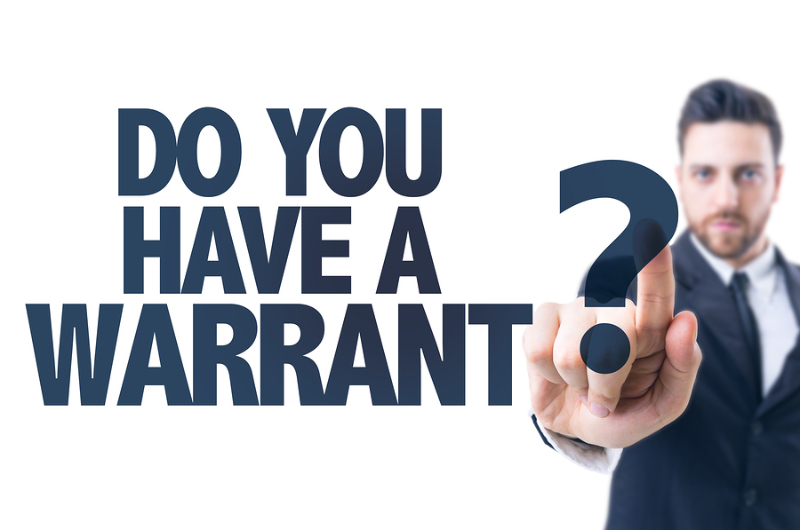
Under the United States Criminal Law, “Probable Cause” is a standard by which enables the law enforcement authorities to obtain a warrant or make an arrest of a suspected criminal or to search his or her property or the Grand Jury can deduce that a crime has been committed.
This standard derives from the 4th Amendment of the United States Constitution incorporated by the states via the 14th Amendment, which delineates:
“The right of the people to be secure in their persons, houses, papers, and effects, against unreasonable searches and seizures, shall not be violated, and no Warrants shall issue, but upon probable cause, supported by Oath or affirmation, and particularly describing the place to be searched, and the persons or things to be seized.
An arrest warrant is an official document, signed by a judge (or magistrate), which authorizes the law enforcement authorities to arrest a person or persons or places to be searched or items to be seized, which are named in the warrant.
Theoretically, the law enforcement must enforce a warrant in a reasonable manner, such as:
If the occupants request to see the search warrant, the law enforcement must show it to them. However, if the occupant/s do not ask to see the warrant, the officer is not required to voluntarily present the actual warrant.
Respect the Occupants of the Premises.
Generally, the law enforcement agent/s must respect the occupants of the premises and to be courteous to those, who cooperate during the execution of search warrants.
Generally, the court is very lenient toward the law enforcement authorities. However, if an officer acts in an outrageous manner, which intentionally, recklessly or even negligently causes physical and/or extreme emotional distress to the people, they can sue the law enforcement authorities for their damages.
But if the court determines that the conduct was within the scope of the officer’s law-enforcement duties, that officer is generally immune (and can't be held liable).
It depends. Generally, if there is no urgent situation, also known as an Exigent Circumstance, the police may not enter a private home to make a warrantless arrest.
On the other hand, if there is an exigent circumstance so that it is impractical for the police to delay the entry and arrest the suspect, until procuring a warrant, no warrant is necessary, even to enter a private home, in some circumstances, such as:
If the police have reasonable causes to believe that the suspect will destroy the evidence,
such as flushing down the toilet a contraband drug like cocaine, then the police may enter the home and make an arrest without a warrant.
The U.S. Supreme Court has held that obtaining some highly prejudicial evidence procured in violation of 4th Amendment’s search and seizure such as: forcefully obtaining blood alcohol level from an inebriated (drunk) person or scraping the defendant’s fingernails for blood and other materials is nonetheless legal.
That is because these evidences are Evanescent, which means, they may disappear due to washing hand or sleeping it off, etc.
If a felony suspect enters his or her or someone else’s home, and the police is in hot pursuit,
a warrantless entry to make an arrest under the doctrine of “Hot Pursuit” is allowed.
Please note that the 4th amendment does not make a distinction between misdemeanor or felony crime, when it comes to arrests.
Police officers have gotten away with arresting people for minor crimes such as not wearing a seatbelt. Atwater v. City of Lago Vista is one of those atrocious cases.
A suspect does not have a constitutional right to refuse providing accurate identification information. That is because, such information is not within the 5th Amendment privilege against self-incrimination.
A police may stop a suspect, if they have a reasonable suspicion, based on articulable facts that the suspect has committed or is about to commit a crime.
Please note: Articulable means the fact upon which the police stop a person is not merely a vague haunch. Please also note that reasonable suspicion for stop and frisk, is a much lower standard than probable cause, which is needed to make an arrest.
Stop and frisk is for the purpose of investigation only. If the Police are reasonably suspicious that the suspect possesses contraband and/or is armed and presently dangerous, only then they may frisk (pat down) the suspect for arms or contrabands such as illicit drugs.
According to U.S. v. Wade, a suspect has an absolute right to have a lawyer present after indictment; and in any critical stages of pretrial confrontation.
Here are a couple of the so-called critical stages, where the right to the presence of a lawyer attaches:
A line up is referred to an investigation technique in which the police arrange a line, so a witness to a crime can identify the individual who committed the crime.
A Show up is the process of showing the suspect alone to the witness and asking, if he/she were the perpetrator of the crime.

Waiver has been the subject of much debates and court arguments. A waiver of your rights to counsel must be Intelligent and Knowing. However, many courts have ruled that if a suspect, voluntarily, that is without trickery and coercion expresses that he or she does not want a lawyer and makes a statement, then the right to a lawyer and the right to remain silent have been effectively waived.
Silence alone is not an effective waiver. In other words, a valid waiver is not presumed simply from silence of the suspect after Miranda Warnings are read.
When it comes to criminal law, most often, the intricacies of the laws and procedures, which can be interpreted in infinite ways, make or break a case.
This is why, someone once said, “A person who represents himself, has a fool for a client.” And the opposite is also true:
An incompetent lawyer can endanger the liberty and even life of an innocent person.
This is why we’ve created www.ChosenLawyers.com. We do our best to bring you some of the most Trusted, Competent and Compassionate Lawyers, who would help you Defend Your Rights and Obtain Justice!
Please note that all information here and/or throughout this website are for your general understanding and not specific legal advice. If you are accused of a crime, please click HERE for a FREE and CONFIDENTIAL case evaluation, right away! That is because when it comes to Law, Time is of the Essence!®
